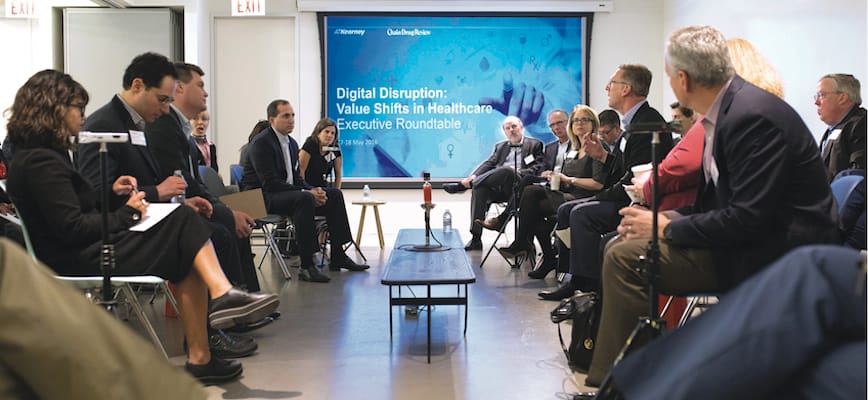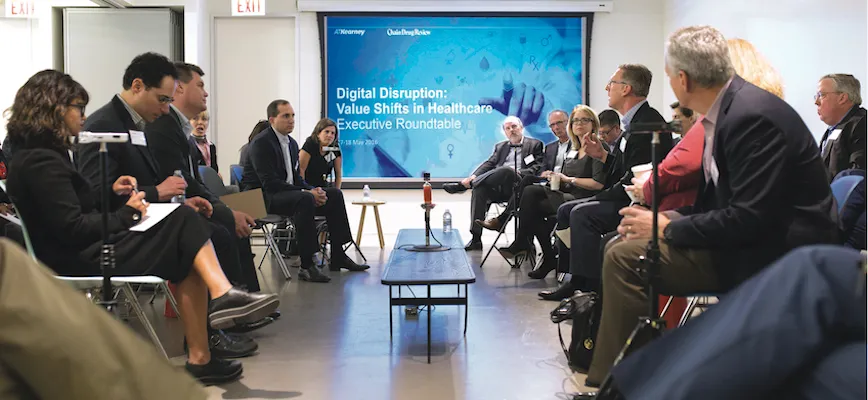
Panelists and attendees exchanged ideas about technology’s impact on health care delivery at the Digital Disruption summit.
CHICAGO — Retail pharmacy is no stranger to technology. For many years pharmacy operators and their supply chain partners have relied on computer-driven systems to ensure efficient distribution of products, assist pharmacists in dispensing and adjudicate insurance claims.
The digital revolution is now bringing about an exponential change in technology’s impact not only on pharmacy, but on the entire U.S. health care system.
To help gain a better understanding of the change that is occurring, and its implications for patients, providers and payers, A.T. Kearney and Chain Drug Review recently sponsored an industry summit — Digital Disruption: Value Shifts in Healthcare.
Executives from some of the nation’s leading pharmacy chains, drug makers and pharmaceutical wholesalers were joined by their counterparts from the insurance industry and physicians’ groups, as well as technology entrepreneurs, to examine the future of health care in the digital age.

“Everyone has lots more data than ever before. We’re creating data on our wearables, and it’s embedded in the services we all provide,” said Todd Huseby, an A.T. Kearney partner who hosted the summit, along with Bob O’Meara, another Kearney partner, and Chain Drug Review editorial director Jeffrey Woldt. “We can use it for better service. We can use it for better quality. We can use it to lower costs. We can use it to grow revenue and generate value.”
Summit attendees were challenged to think about the promise and potential pitfalls of digital technology in a variety of ways. During a reception at 1871, a start-up accelerator based in Chicago’s Merchandise Mart, five fledgling companies shared new approaches to aspects of health care delivery:
• Patient Innovation Center showcased an independent health care navigation program to help consumers find affordable care options.
• PhysIQ detailed what is said to be health care’s first personalized physiology data analytics platform.
• SHIFT (Life) talked about its program to integrate every aspect of health, including medical care, coaching, physical fitness and nutrition, on an individual basis.
• Waitbot talked about how its proprietary hardware and software solutions can help make health care providers more efficient and consumers’ lives easier.
• Zest Health highlighted its Smart Concierge service and eponymous app, which facilitate benefits management, increase patient engagement and limit health care costs.
The group then heard from Steven Collens, chief executive officer of Matter, a health care technology incubator also headquartered in the Merchandise Mart. He put the work of entrepreneurs in the context of the broader changes sweeping health care.
The heart of the summit were two panel discussions led by A.T. Kearney partners Jeff Hewitt and Chris Paddison. The roundtables centered on what it will take to marshal the unprecedented amount of data available and leverage it to create better value for all stakeholders.
The summit generated more questions than answers, but left no doubt that digital technology is changing health care delivery in profound ways, and that companies that don’t recognize and respond to that fact risk being left behind.







